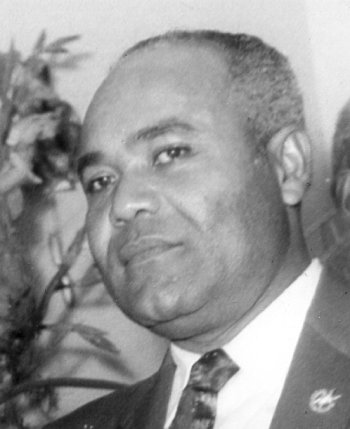loyola llothta
☭☭☭
‘An electoral movement’
In May 2011, with Martelly’s inauguration just days away, USAID provided a grant of $98,928 to Chemonics to support MTK. According to Chemonics’ internal activity database, the grant was for cleaning up the capital “in advance of the presidential inauguration.” Chemonics and USAID declined to be interviewed for this story. In an emailed statement, USAID said that Chemonics used the money to provide hand tools to MTK to clean the streets as part of a “civic engagement” program.
Both Chemonics and USAID, in separate emails, used the exact same language to describe MTK, calling the group a “network of community-based organizations” — and not a political organization. However, one person who was an MTK member from 2010 to 2014 and who requested anonymity for fear of reprisals, explained that from the very beginning, MTK “was a political movement.”
The former MTK member explained that before the election, many Haitians bought pink membership cards declaring themselves the Base of Michel Joseph Martelly (BMJM). The pink cards were supposed to get people jobs with the new government as well as discounts at local businesses. It was also a tremendously successful way to obtain personal information on thousands of potential voters. At the time, analysts noted the similarity to the infamous Tontons Macoutes, the brutal secret police active under François “Papa Doc” Duvalier’s dictatorship, which had a similar system of membership cards that yielded patronage and privileges for holders.
The first round of the election was fatally flawed from the beginning. With over a million people still displaced by the earthquake and a cholera epidemic sweeping the country, there was predictably massive disenfranchisement, with most would-be voters simply staying home. Initial results released by the electoral authority put Manigat and Préval’s preferred successor, Jude Célestin, in the runoff election.
For days, throngs of Martelly supporters took to the streets of the capital seeking to push their candidate into the second round. They were clad in their signature pink and loudly declared their support for MTK. Many also carried their pink membership cards. Manigat, his eventual rival in the second round, dubbed the street supporters Martelly’s “pink militia” and warned of the threat to political tolerance that they represented.
“It was an electoral movement,” a current member of MTK, who held various positions in the organization and spoke on the condition of anonymity to avoid reprisals, said during a recent interview in Port-au-Prince. “After the first round, it was us in the streets protesting … This is the movement that put Martelly into power.”
The former MTK member said that at first members were given BMJM cards but that after the election they were given new cards, with MTK emblazoned on them. He showed both his now expired cards.
Street pressure and U.S.-led diplomatic pressure succeeded in overturning the first round results, in what Organization of American States (OAS) whistleblower Ricardo Seitenfus later described as a “silent coup.” A mission nominally from the OAS but in reality funded in large part and controlled by the United States government, according to analysts, went to Haiti to analyze the results. What the OAS recommended was unprecedented. Without any statistical basis, the mission said Martelly came in second, ousting Célestin from the runoff. In a private meeting in 2011, the head of the OAS statistical team, Fritz Scheuren, acknowledged that in all his years, he had never otherwise seen an example of an election outcome being reversed without a recount.
In a January 2015 interview in his home in the historic Pacot neighborhood of Port-au-Prince, the prime minister at the time, Jean-Max Bellerive, said that when he first received the OAS’ report on the elections, it was clear that the conclusions it reached were not supported by the evidence in the report. According to Bellerive, Mulet would not accept a result that put Célestin in the runoff. Hillary Clinton, the U.S. secretary of state at the time, traveled to Haiti in late January 2011 to push for overturning the first round election. “We tried to resist and did, until the visit of Hillary Clinton. That was when Préval understood he had no way out and accepted” the OAS report, Bellerive said.






